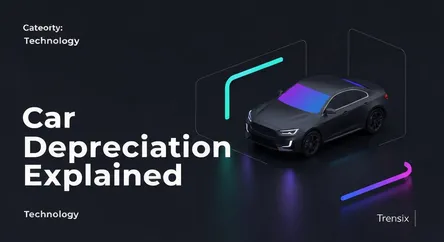Technology
Car Depreciation Explained

Discover what car depreciation is, why it's a hot topic, and how this hidden cost impacts your finances and vehicle ownership decisions.
What is it?
Car depreciation is the reduction in a vehicle's value over time. From the moment you drive a new car off the lot, its value begins to drop. This loss is caused by a combination of factors, including age, mileage, wear and tear, market demand, and even the car's color and features. The most significant drop in value typically occurs within the first year of ownership, often losing 20% or more. Over five years, a new car can lose up to 60% of its original purchase price. This decline is a major, though often overlooked, expense associated with owning a vehicle.
Why is it trending?
Depreciation is a trending topic due to recent volatility in the automotive market. Fluctuating used car prices, supply chain issues affecting new car inventory, and the growing popularity of Electric Vehicles (EVs)—which have their own unique depreciation patterns—have brought the concept to the forefront. As new car prices remain high, consumers are paying closer attention to the long-term cost of ownership. Understanding how quickly a car will lose value has become a crucial part of making a financially sound purchase in an unpredictable economic climate.
How does it affect people?
Depreciation directly impacts a car owner's finances. It determines the vehicle's resale or trade-in value, meaning you'll get less money back when you decide to sell. It also affects auto insurance; if a car is totaled, the insurance payout is based on its current market value, not what you paid for it. This can leave owners with a loan balance higher than the car's worth, a situation known as being "upside down." For buyers, understanding which models depreciate slowest can save thousands of dollars over the life of the vehicle.